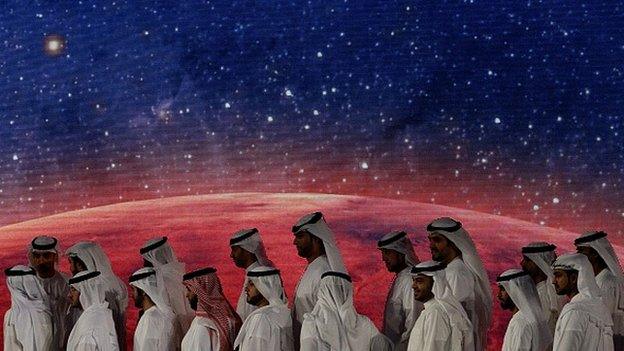The United Arab Emirates' mission to Mars
- Published
"This will tell us a lot about the atmosphere of Mars'" says the UAE's Dr Mohammed Naser al Ahbabi
The mission is to send a probe on a 60 million kilometre journey to orbit Mars, in order to help discover why the Red Planet - thought once to have had water like Earth - is now dry.
Fittingly, this project is being undertaken by the desert state of the United Arab Emirates.
It's the first space exploration mission ever to be launched by an Arab state, and the UAE's space agency has just five years to build the probe and all its components.
The launch date is in July 2020, at a point when Earth and Mars are aligned in their orbits around the sun and closest to one another.
The plan is for the probe to enter Mars' orbit on the 50th anniversary of the UAE's foundation as an independent country.
At the Dubai Airshow, the UAE Space Agency has been showing its project to the public and the international media.
"There's a window of around two to three weeks - the launching window - if you miss that, you have to wait another two years," says the space agency's director general Dr Mohammed Naser al Ahbabi.
"It is challenging. If we miss that, we will miss our 50th anniversary arrival at Mars. So this is another challenge."
Science mission
At the Mohammed Bin Rashid Space Centre in Dubai, a team of 75 engineers are building the satellite, which is roughly the size of a small car.
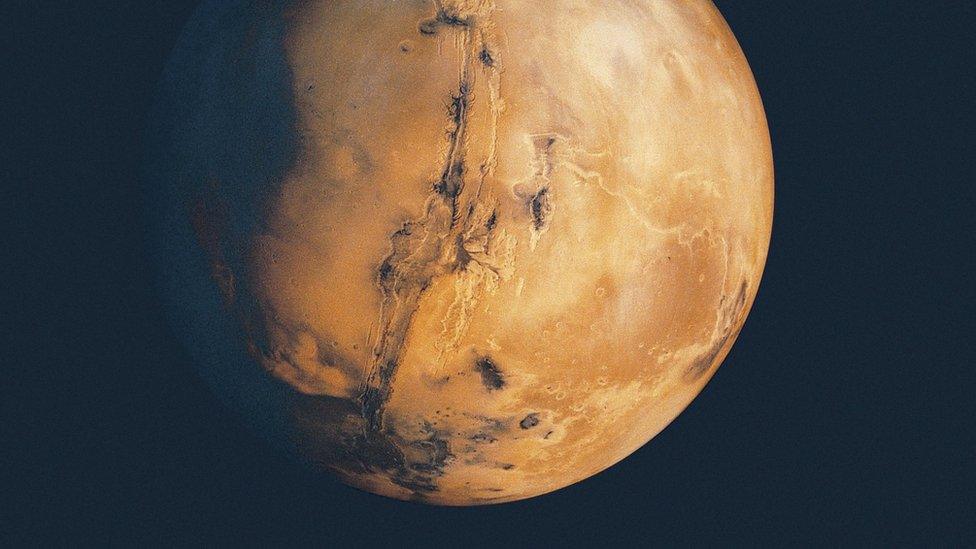
Dubai's launch date is July 2020, at a point when Earth and Mars are closest to one another
They are also making all the components, such as imaging equipment, ultraviolet and infrared spectrometers, solar panels, a star-tracker navigation system and the thrusters that will slow the craft down once it reaches Mars orbit.
Everyone on the team is Emirati, and the average age is 32.
"The goal is unifying and inspiring young people in the UAE," says Dr al Ahbabi. "Now, young Emiratis are desperate to work on this and to be part of this journey into space."
The plan is for the probe to orbit Mars for two years, collecting data about the planet's upper and lower atmospheres. Recent explorations by NASA suggest Mars used to have a cool climate and a lot of water on its surface.
Scientists believe the atmosphere thinned to the point where Mars became so hot that almost all the water evaporated, the molecules escaping though the edge of the atmosphere into space.
The planet does have frozen water its polar ice caps, and Nasa has recently found some evidence that liquid water flows at sub-surface levels intermittently on present-day Mars, external - but the planet is extremely arid when compared to Earth.
The data collected by the probe will be presented to NASA for analysis. It may help scientists forecast what effect global warming will have on water resources here on Earth.
"Our science mission will validate some of the suggestions of about there having been water on Mars," says Dr al Ahbabi.
"But it will also contribute to a better understanding of Mars, because understanding what happened to Mars may help us understand what is happening to our home - Earth - and how we can protect the atmosphere of Earth. So it is a great contribution to our home planet."
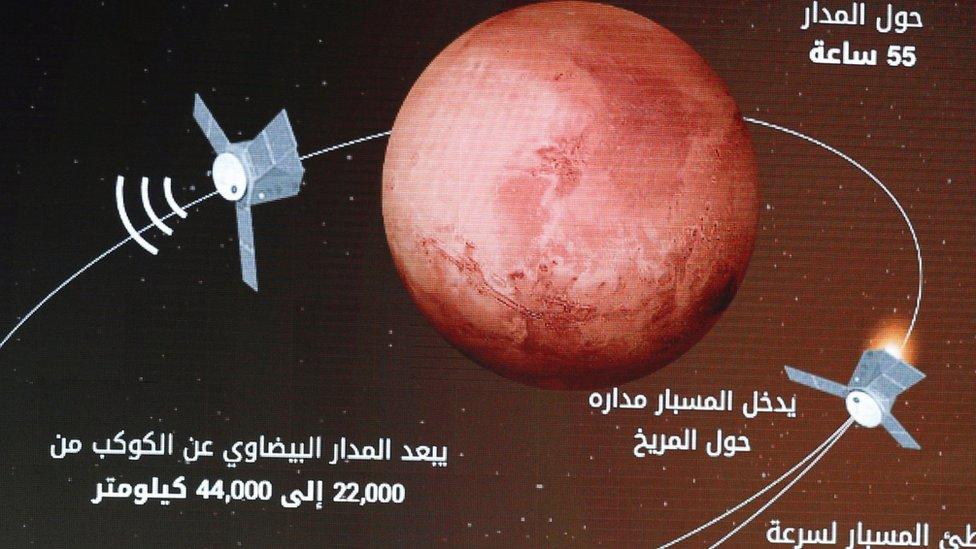
The plan is for the probe, named Al Amal, or Hope, to orbit Mars for two years, collecting data about the planet's atmosphere
Dubai, which is home to the Mars mission, is already well-known for extravagant, headline-grabbing projects such as building huge islands in the sea, and the world's tallest tower.
High profile, high cost
The ruler of Dubai and UAE Vice-President, Sheikh Mohammed bin Rashid al Maktoum, unveiled the space mission last year.
The nation's rulers want to put the UAE at the forefront of scientific endeavour in the Arab world and recapture some of the spirit of the Golden Age of Islam when - in medieval times - the Middle East led the world in learning.
"This is the first Arab and Islamic country which has stepped into space exploration," says Dr al Ahbabi. "Space is a great model for international co-operation, regardless of our differences on Earth."
However, with a city as mercantile as Dubai as its base, there are also hard-headed commercial considerations behind the Mars mission.
The US's Space Foundation says the global space industry generates revenues of over $330bn a year. Three-quarters of the sales of space equipment - such as satellites and launch rockets - are to commercial customers such as television and communications companies and the UAE wants to gain a stake in this market.
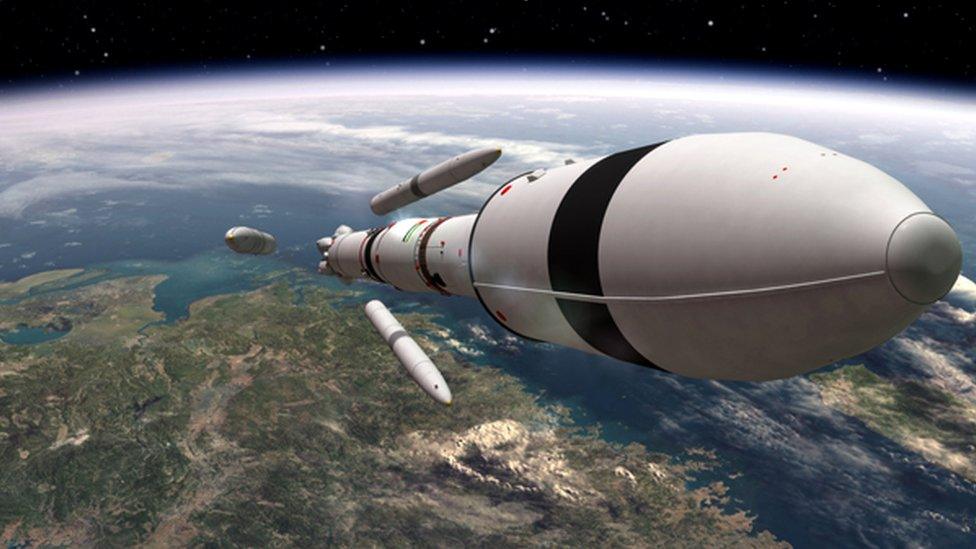
The UAE also hopes its Mars mission will help it gain a share of the $330bn-a-year global space business
UAE scientists have, in fact, built satellites before, in collaboration with scientists from South Korea. The first, DubaiSat 1, was designed and built almost entirely by the Koreans, but with DubaiSat 2, the Emirati team built half the satellite themselves.
With the Mars satellite, the mission team is building all its high-technology imaging and navigation components from scratch, rather than buying them off-the-shelf from established manufacturers such as Boeing.
It will then be able to market them to its customers of its own. However, the mission team is receiving technical advice from four US universities.
So far, UAE says it has spent over $5bn on its satellite programme. Billions more will be spent on the Mars mission. It is a high-profile, but high-cost, way for the nation to enter the global space industry.
- Published11 November 2015
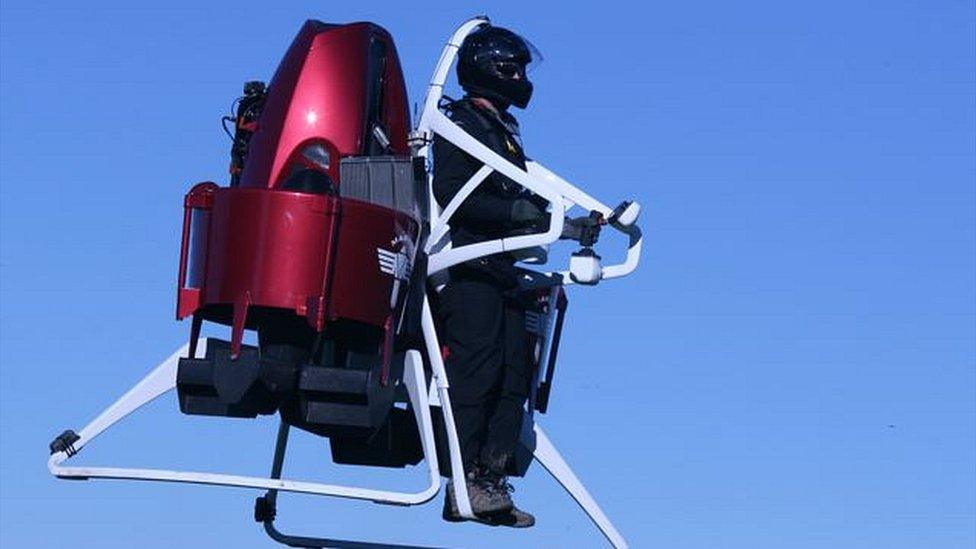
- Published10 November 2015
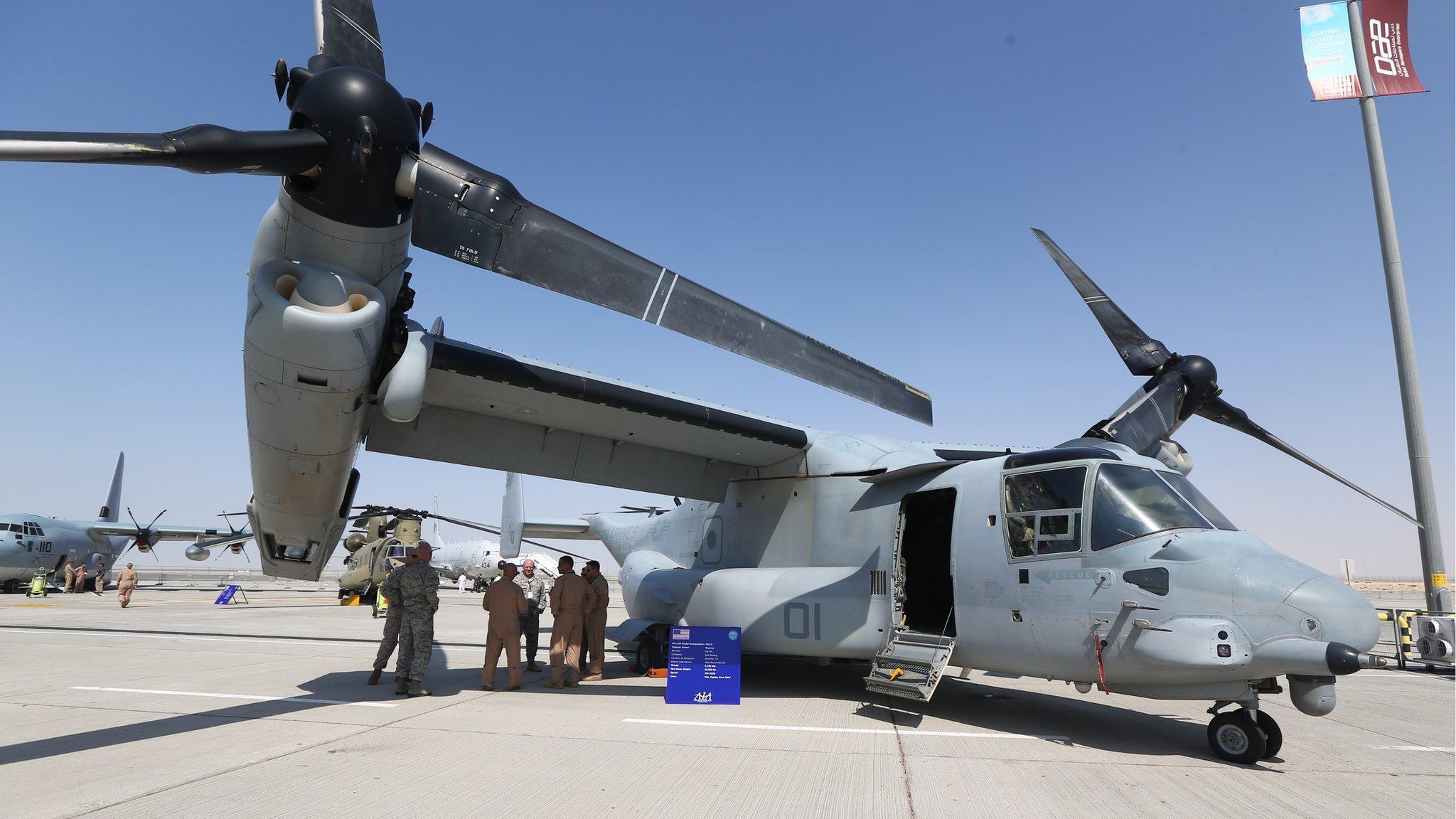
- Published8 November 2015
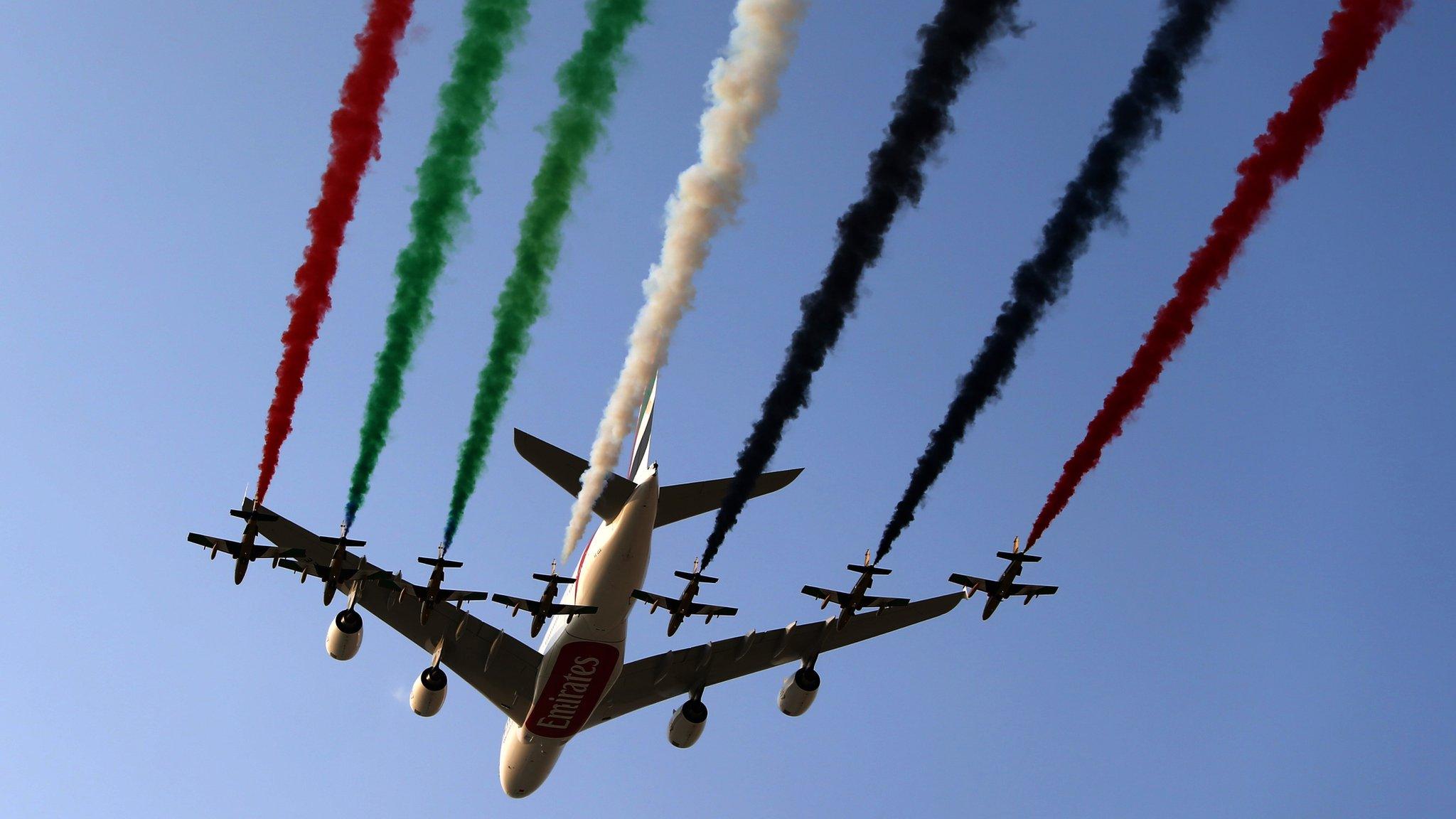
- Published29 May 2015
